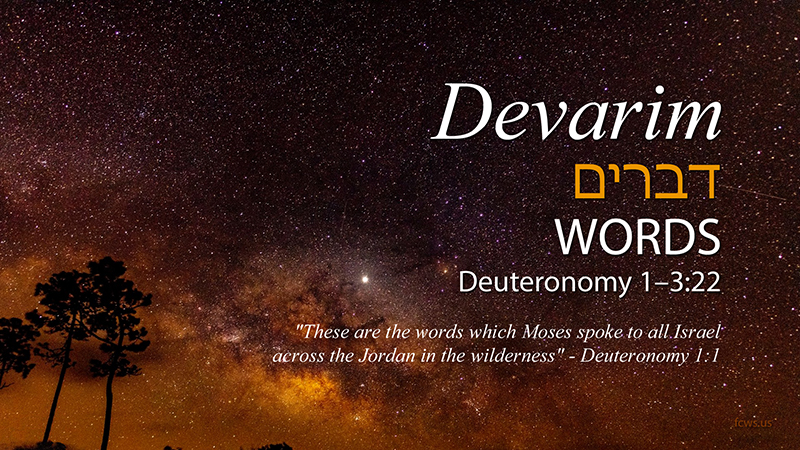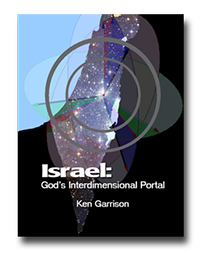 I will continue my discussion of the books of Moses this week. Included in this section is some revelation concerning the connection between heaven and earth. I have developed this theme in my book “Israel – God’s Interdimensional Portal“ available at Amazon.
I will continue my discussion of the books of Moses this week. Included in this section is some revelation concerning the connection between heaven and earth. I have developed this theme in my book “Israel – God’s Interdimensional Portal“ available at Amazon.
The Book of Deuteronomy (Hebrew “Devarim”) was recited to Israel on Mt. Nebo just before Israel entered the land. Moses’ work in this age has been completed. Joshua would lead Israel into the Promised Land. Since the specific date was given, the 1st day of the 11th month of the 40th year, it would be only 70 days before Israel crossed the Jordan River and began the conquest.
God commanded Israel to “go in and possess” the land. To do this they would have to dispossess the Canaanites who were already there. Moses declared,
“Do not fear them, for the Lord your God is the one fighting for you.”
God would do this by,
“This day I will begin to put the dread and fear of you upon the peoples everywhere under the heavens, who, when they hear of you, shall tremble and be in anguish because of you.” (Deuteronomy 2:25)
God would also harden their hearts as He had done to Sihon, king of Heshbon (Deuteronomy 2:30). Finally, we know from the book of Joshua that God entered the battle directly as needed. I believe that these commands are as applicable today as they were when Moses spoke them.
God declared,
“You shall not add to the word which I am commanding you, nor take away from it, that you may keep the commandments of the Lord your God which I command you.” (Deuteronomy 4:2)
It appears to me that both Israel and the Church have ignored this commandment. In Israel, the Oral Tradition evolved as an interpretative body of work of the commandments. This was eventually written in the form of the Mishnah. Commentaries were added to the Mishnah to form the Talmud. For all practical purposes, these added to the commandments by being more restrictive than the original commandments.
In Christianity, it is acceptable to simply ignore any commandment which does not fit into Christian theology. One of the best examples of this is Shabbat. The Shabbat as well as others of the Lord’s festivals (Leviticus 23:37) are ignored and new festivals have been developed in their place.
The commandments define a lifestyle which is pleasing to the Lord. We might call it a “Biblical Lifestyle”. In Israel this would be seen as a “Torah Lifestyle”. Christianity denies the use of the word “Torah” so it would be called a “Biblical Lifestyle”. God declared that this is wisdom.
“So keep and do them, for that is your wisdom and your understanding in the sight of the peoples who will hear all these statutes and say, ‘Surely this great nation is a wise and understanding people.’” (Deuteronomy 4:6)
In the animal kingdom, the creatures act for their own survival and well-being. This is classified as instinct. I believe what we call instinct is God speaking directly to animals. This process is confused in mankind due to the confusion introduced at the time of the fall. This is really communication from the evil one who challenges every commandment given by God. The Torah becomes our “instinct”. As we live lives in the pattern of Torah, we appear to be wise because we are following the pattern defined by God consistent with His original design for human existence.
Finally, one of my favorite activities is to speculate about the nature of heaven.
“And you came near and stood at the foot of the mountain, and the mountain burned with fire to the very heart of the heavens; darkness, cloud and thick gloom. Then the Lord spoke to you from the midst of the fire; you heard the sound of words, but you saw no form – only a voice.” (Deuteronomy 4:11-12)
 If we think of heaven as a multi-dimensional universe distinct from the space-time continuum, than this event reveals a coupling of these two universes at Mt. Sinai. Note the term, “to the very heart of heaven”. This means something like “deep within the region of heaven”. Israel experienced this at Mt. Sinai and it is recorded. Please see “Israel – God’s Interdimensional Portal” for more discussion on this subject.
If we think of heaven as a multi-dimensional universe distinct from the space-time continuum, than this event reveals a coupling of these two universes at Mt. Sinai. Note the term, “to the very heart of heaven”. This means something like “deep within the region of heaven”. Israel experienced this at Mt. Sinai and it is recorded. Please see “Israel – God’s Interdimensional Portal” for more discussion on this subject.
We could add discussions about the beginning of the office of Messiah (Deuteronomy 5:22-28), the Shema and following commandment quoted by Jesus (Mark 12:29-30) and the origin of the use of “Tifillim”. But I will save that for another day.
